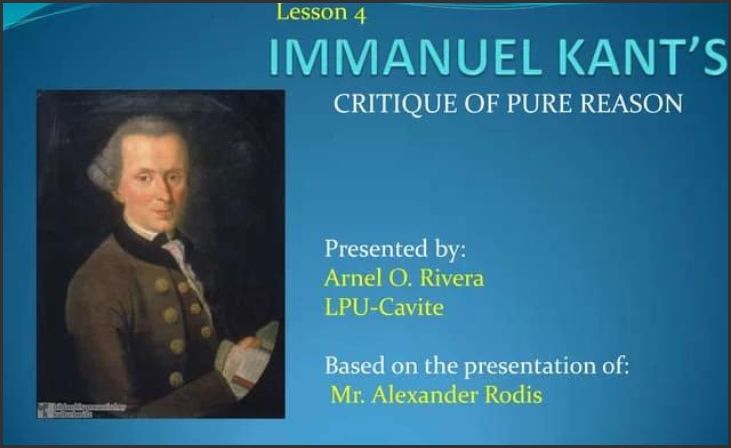Embarking on a philosophical odyssey through the realms of the “6 Must-Read Philosophy Books” is akin to setting sail on a journey of intellectual discovery. Each of these books stands as a gateway to profound ideas, inviting readers to delve into the depths of transformative thinking. As we navigate through the pages of these literary treasures, join me in exploring the profound significance that philosophy holds and the profound impact these books can wield on your intellectual journey.
These books, carefully selected for their timeless wisdom, serve as beacons guiding readers through the intricate tapestry of human thought. They transcend the boundaries of time and culture, offering a universal invitation to ponder life’s fundamental questions and engage in profound philosophical contemplation.
The odyssey begins with an invitation to unravel the layers of meaning embedded in each book. It’s not merely about reading words on pages; it’s about immersing oneself in the rich tapestry of philosophical discourse woven by the brilliant minds behind these works. These books, in their essence, act as catalysts for introspection and catalysts for challenging conventional perspectives.
Importance Of Reading Philosophy Books
Before knowing the Must-Read Philosophy Books, you should also get to know everything about the importance of reading books:-
Critical Thinking Skills:
Philosophy encourages and sharpens critical thinking skills. Engaging with philosophical texts challenges readers to analyze, question assumptions, and develop logical reasoning. This skill set is transferable to various areas of life, enabling individuals to make informed decisions and navigate complex situations.
Also Read:- WAYS TO WALK BETTER DAILY
Broadened Perspective:

Philosophy exposes readers to diverse perspectives and ways of thinking. By exploring different philosophical schools of thought, readers gain a broader understanding of the world, cultures, and the human experience. This exposure fosters tolerance and empathy, promoting a more inclusive worldview.
Self-Reflection and Self-Discovery:
Philosophical works often delve into questions of identity, purpose, and existence. Reading these books provides individuals with opportunities for self-reflection and self-discovery. Philosophical inquiries into the nature of the self can lead to a deeper understanding of one’s values, beliefs, and aspirations.
Ethical Considerations:
Philosophy is closely tied to ethics, exploring questions of morality and the nature of right and wrong. Reading philosophical works helps individuals develop a foundation for ethical reasoning, contributing to the formation of a personal moral compass and ethical decision-making.
Intellectual History Awareness:
Philosophy is intertwined with the intellectual history of humanity. Reading philosophical texts allows individuals to connect with the ideas that have shaped societies throughout time. Understanding the historical context of philosophical works provides insights into the evolution of thought and the foundations of contemporary ideas.
6 Must-Read Philosophy Books
“Meditations” by Marcus Aurelius:

“Meditations” is a timeless exploration of Stoic philosophy penned by Roman Emperor Marcus Aurelius during his military campaigns. This collection of personal writings reflects on virtue, self-discipline, and resilience in the face of adversity. Aurelius offers profound insights into the nature of existence, encouraging readers to cultivate inner strength and find tranquility amidst life’s challenges. The book’s enduring relevance lies in its practical wisdom, applicable to individuals navigating the complexities of the human experience.
“Sophie’s World” by Jostein Gaarder:
Jostein Gaarder’s “Sophie’s World” ingeniously combines fiction with philosophy, taking readers on a journey through the history of philosophical thought. The narrative unfolds as a young girl, Sophie, receives mysterious letters introducing her to various philosophical ideas. Gaarder explores the evolution of human thinking, making complex philosophical concepts accessible and engaging. Through a captivating story, readers gain a comprehensive overview of major philosophical movements, from ancient Greece to the modern era. Keep reading to know more Must-Read Philosophy Books.
“Thus Spoke Zarathustra” by Friedrich Nietzsche:

Friedrich Nietzsche’s “Thus Spoke Zarathustra” is a philosophical and literary masterpiece that introduces the concept of the Übermensch or “overman.” Through poetic prose, Nietzsche challenges traditional morality and explores the idea of eternal recurrence. The book delves into themes of individualism, the will to power, and the transformative journey of self-discovery. Nietzsche’s unconventional and profound reflections continue to inspire and provoke thought, making “Thus Spoke Zarathustra” a cornerstone of existential philosophy.
“The Republic” by Plato:
Plato’s “The Republic” is a foundational work of Western philosophy, presented as a Socratic dialogue. The text explores justice, the nature of the soul, and the concept of an ideal state. Through the character of Socrates, Plato examines different forms of government and their implications for justice and individual well-being. The allegory of the cave, one of the book’s most famous passages, delves into the nature of reality and the transformative power of knowledge. “The Republic” remains a thought-provoking exploration of ethics, politics, and the pursuit of a just society.
“Being and Time” by Martin Heidegger:
Martin Heidegger’s “Being and Time” is a groundbreaking work in existential phenomenology. This dense and influential text delves into the nature of being and the human experience. Heidegger explores how individuals exist in the world, examining the concept of Dasein, or being-in-the-world. The book addresses fundamental questions about existence, time, and authenticity, challenging traditional philosophical approaches. “Being and Time” has had a profound impact on existentialist thought and continues to shape discussions on ontology and phenomenology. Continue scrolling through to know more Must-Read Philosophy Books.
Also Read:- EASY ZERO WASTE TIPS
“Critique of Pure Reason” by Immanuel Kant:

Immanuel Kant’s “Critique of Pure Reason” is a monumental work in epistemology and metaphysics. In this complex but essential text, Kant investigates the nature and limits of human knowledge. He distinguishes between a priori and a posteriori knowledge and introduces the concepts of space and time as fundamental to human cognition. Kant’s transcendental idealism, which posits that certain aspects of reality are shaped by human perception, revolutionized philosophical thought. “Critique of Pure Reason” is a challenging yet rewarding exploration of the conditions that make knowledge possible, influencing subsequent philosophical movements such as German Idealism.
Conclusion
In concluding our exploration of the “6 Must-Read Philosophy Books,” it becomes evident that these literary gems extend an invitation to embark on a transformative journey into the realm of profound ideas. Irrespective of whether you find yourself as a seasoned philosopher, well-versed in the intricacies of philosophical thought, or a novice explorer eager to take those initial steps into intellectual discovery, these books hold the promise of enriching your intellectual landscape in profound ways.
The transformative power of these books lies not only in the wisdom encapsulated within their pages but also in their capacity to transcend individual backgrounds, experiences, and levels of familiarity with philosophical discourse. They beckon readers to dive in, immersing themselves in a sea of timeless wisdom and profound contemplation.
FAQs
These books encapsulate profound ideas that challenge conventional thinking, making them essential for those seeking intellectual stimulation.
Absolutely! Each book offers a unique entry point, catering to both beginners and seasoned philosophy enthusiasts.

